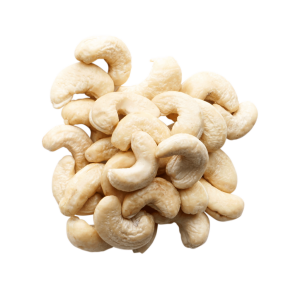The effect of different roasting conditions on antioxidant capacity of phenolics of cashew nuts and their testa was evaluated using several food and biological model systems. Total phenolic content (TPC) of cashew extracts were determined and accelerated oxidative stability of stripped corn oil in the presence of cashew extracts evaluated. In addition; the antioxidant activity of the extracts was assessed in a Ãu009f-carotene-linoleate and a cooked comminuted pork model system. Inhibition of oxidation of human low density lipoprotein (LDL) cholesterol and stand breaking of supercoiled deoxyribonucleic acid (DNA) was also investigated. The TPC ranged from 5 to 791 mg gallic acid equivalents/g crude extract. In general; whole cashew nuts and testa extracts demonstrated stronger antioxidant activity than that of the cashew kernel. The inhibition percentage of LDL cholesterol oxidation; as evaluated by conjugated dines formation; of cashew kernels was higher than that of testa and was 69% at the end of 24 h incubation. Extracts of roasted cashew nut showed considerable antioxidative efficiency in model systems employed in this study; however; the effect was not significantly (P less-than-or-equals; slant 0.05) different from that of their raw counterparts; except for the accelerated oxidative stability assay. The results suggest that whole cashew nut and testa extracts could be used as a potential source of natural antioxidants in certain food applications and for disease risk reduction.
